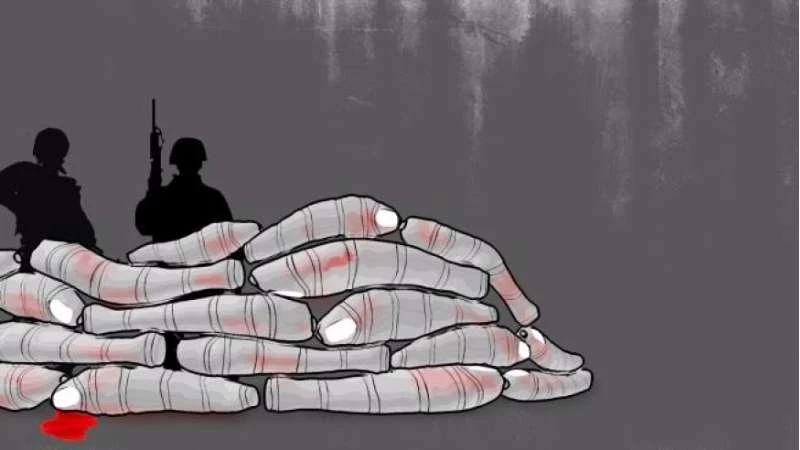Checkpoints have been a part of the landscape for as far back as most Syrians can remember but there is one in particular that strikes fear in the hearts of most of those who are forced to pass through it.
This well-known checkpoint has been called by many names; the checkpoint of terror, of death and of fear.
The average Syrian has always known that money for bribes must automatically be included in the cost of any trip as a way to make sure he will be allowed to safely pass through the majority of the country’s checkpoints.
But what makes the al-Qutayfah checkpoint of terror different from the rest of the Assad regime’s checkpoints is that those who man it are far more interested in looking for reasons to detain Syrians than they are in coercing bribes out of them.
Every person who passes through al-Qutayfah checkpoint must wait until a thorough search is made for his or her name on a comprehensive list of those wanted by the regime.
“The names on the checkpoint’s list are not on other wanted lists,” wrote Omar Youssef Souleimane in an article published by SyriaUntold last month.
“This list includes every possible accusation: being oppositionists, terrorists, carrying arms, dodging mandatory service, weakening national morale, foreign collaboration, among others.
“The fear Syrians have of this checkpoint is reflective of the shadow of fear in which Syrians have spent their lives.”
The reason so many people are required to pass through al-Qutayfah checkpoint is because it is strategically located on the highway that links the capital city of Damascus to northern Syria.
It is situated 40 km from Damascus and 40 meters before the al-Qutayfah Bridge at the entrance to the city of the same name.
The checkpoint is under the control of the Third Division’s 14th Regiment, one of the most powerful and feared units of Assad regime forces, which is stationed just south of al-Qutayfah with military barracks and housing located between the checkpoint and the city.
The checkpoint is extremely well organized and firmly structured in such a way that all civilian vehicles; vans, cars and buses can be thoroughly checked.
It consists of three lanes, each responsible for a different type of vehicle; one for passenger cars and small trucks, a second lane for minibuses and transport buses, and a third lane that allows for the passage of military vehicles only.
The al-Qutayfah check point is also known for its brutality and cruelty towards people who belong to the rebellious Qalamoun area who have reported many cases of arrest, theft, humiliation and insult.
Although anyone passing through is considered fair game, the mission of this check point is also to identify and detain those with military service violations so more often than not young men of military age are deliberately singled out for humiliation and harassment and it is common for busloads of people to wait while their fellow passengers are plucked from their midst and interrogated.
If it is determined that they have indeed failed to fulfill their mandatory military service they are immediately handed over to the Third Division.
Huge numbers of Assad officials and military man the checkpoint and it is not unusual to see in excess of 200 vehicles lined up in each direction waiting to get through.
“You can say that this checkpoint has been transformed into an independent military outpost,” says Mohammad Hamidan, an officer who defected from the 14th Regiment in 2012.
Hamidan says that the checkpoint is usually manned by approximately 300 officers in addition to the Third Division commander — but officials from different intelligence branches are also at the checkpoint and they bring their own lists of people supposedly wanted by the regime with them.
“Whenever someone is arrested, they get their name at the checkpoint. Even if the person is released, they retain their name and will detain the individual if they cross the checkpoint.
“They even detain people if their name is similar to a name on the list. The detained are then taken to the Third Division’s headquarters, where people who have done nothing wrong confess to all sorts of crimes to escape torture.”
The presence of the ‘checkpoint of terror’ makes it pretty much impossible for opposition activists from the Damascus area and further south to reach the northern area for any reason, not even to visit their families or gain access to medical care in Turkey.
A media activist in Daraya recently told Orient Net that they are forced to take the severely wounded to the border of Jordan where they have not been allowed to enter for more than six months.
But it is the people living in al-Qutayfah who work or attend school outside the city who suffer the most. They have no choice but to pass through the checkpoint everyday if they work or are students attending classes in Damascus.
They say that even if the guards recognize them and know who they are they still insist on stopping and inspecting them every time they pass through.



التعليقات (0)